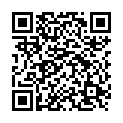|
|
|
| Module code: DFBME-604 |
|
|
2C (2 hours per week) |
|
3 |
| Semester: 6 |
| Mandatory course: yes |
Language of instruction:
German |
Assessment:
Oral examination
[updated 08.05.2023]
|
DFBME-604 (S610-0350) Mechanical Engineering, Bachelor, ASPO 01.10.2019
, semester 6, mandatory course
DFBME-604 (S610-0350) Mechanical Engineering, Bachelor, ASPO 01.10.2024
, semester 6, mandatory course
|
30 class hours (= 22.5 clock hours) over a 15-week period.
The total student study time is 90 hours (equivalent to 3 ECTS credits).
There are therefore 67.5 hours available for class preparation and follow-up work and exam preparation.
|
Recommended prerequisites (modules):
None.
|
Recommended as prerequisite for:
|
Module coordinator:
Studienleitung |
Lecturer:
Prof. Dr.-Ing. Heike Jaeckels
[updated 29.07.2022]
|
Learning outcomes:
After successfully completing this module, students will:
* be able to orally present their topic, problem-solving method, and intermediate or final results of their BA thesis in an appropriate manner and to an audience of professionals.
* be able to prepare and use suitable media to support their presentation
* be able to critically examine and question the (interim) results they have achieved
* be able to take part in a discussion with a specialist audience on the content of their thesis and related issues.
[updated 23.02.2024]
|
Module content:
A mid-term colloquium will be held halfway through the BA thesis. This part of the course work will not be graded, but will be analyzed in a feedback session with the lecturer.
The final colloquium will take place for all students in a block seminar at the end of the 6th semester and will be graded individually. A one-on-one appointment may be arranged where warranted.
Both the oral expression and the design of the written presentation will be evaluated and reflected upon in another feedback session.
[updated 23.02.2024]
|
Teaching methods/Media:
Seminar-style teaching with instructions for creating presentation documents
Feedback discussions on the content of the thesis with regard to preparing for the colloquium
[updated 23.02.2024]
|
Recommended or required reading:
[updated 08.05.2023]
|

